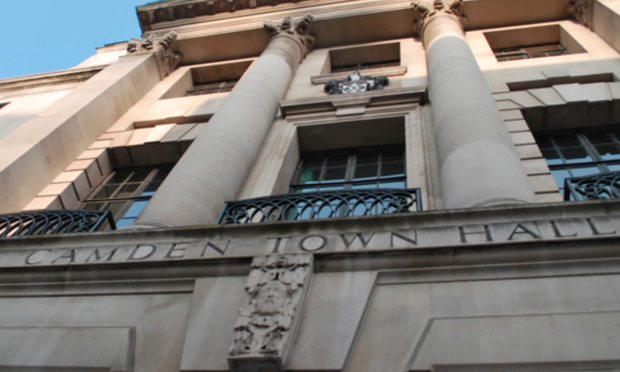‘Uncertainty’ over impact of Universal Credit on council finances

Camden Town Hall. Photograph: Camden Council
A report on the state of Camden Council’s finances highlights the potential impact of the introduction of Universal Credit on council tenants’ ability to pay their rents.
Camden’s Annual Financial Report 17/18 also raised concerns about the council’s ability to recover bad debt under its current policies.
The report presented by executive director for corporate services and responsible financial officer Jon Rowney to the council’s Audit and Corporate Governance Committee on 26 July.
It reads: “As at 31 March 2018 the authority had sundry debtors of £107.566m (£61.202m at 31 March 2017).
“The council does not have a single policy for the bad debt provision in order to reflect the risks associated with the type of debt, and appropriately robust to ensure that debts are reflective of ‘recoverability’.
“Considering the current economic climate and the introduction of universal benefits in the near future, it is possible that the bad debt provision
for council tenant rents is too low.”
Responding to quizzing by the Citizen on the uncertainty, a spokesperson for Camden Council said: “The council operates an efficient debt recovery process through which it ensures that debts are recovered within the parameters of the law and with regard to customers’ financial circumstances.
“It also reviews and updates its bad debts policies on an annual basis to ensure that provisions are adequate. In 2016/17 the bad debt provision level was circa £50m.
“The council has multiple bad debt provision policies in place, reflecting each type of debt (eg Council Tax and Business rates arrears, housing rent arrears, etc.) and this has been reflected in the Statement of Accounts. The total bad debt provision for 2017/18 is £48.1m.
“Camden Council reviews its bad debts provisions annually and in 2017-18, it assumed a £2m increase in bad debt provision for housing rent by 2020.
“This will be reviewed again when UC is rolled out across Camden and the impact can be measured. The potential impact of UC to the borough is still being assessed.”
UC is a single monthly payment combining six former benefit payments: child tax credit, housing benefit, income support, income-based jobseeker’s allowance (JSA), income-related employment and support allowance (ESA), and working tax credit.
However, its introduction has been marred with controversy and is six years behind its original schedule, with Secretary of State for Work and Pensions Esther McVey admitting in July that changes were needed to the system’s facilities for debt repayment and support for the self-employed, as well as the cycles of benefit payment for working claimants.
A report released by Citizens Advice on 6 July called for a pause to the roll-out, claiming that the system is “currently failing too many people and forcing many into debt.”
UC began a limited roll-out in Camden in June 2018, with additional Jobcentres scheduled to administer the benefit in December.
